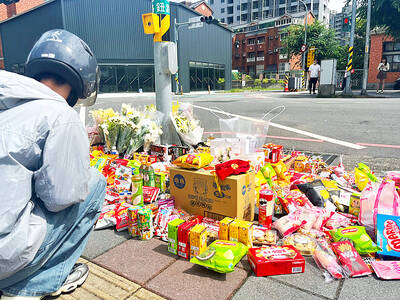India raised interest rates for the second straight month yesterday and Australia signaled it could tighten policy further as the region’s economies rapidly recover, putting pressure on policymakers to keep inflation in check.
India and Australia are the only two G20 economies to have raised rates so far.
The Reserve Bank of India (RBI) raised its key policy rates by 25 basis points each, as expected, and also lifted its cash reserve ratio requirement for banks by quarter of a percentage point to drain more liquidity from the financial system as it battles inflation near double digits.
“With the recovery now firmly in place, we need to move in a calibrated manner in the direction of normalizing our policy instruments,” RBI Governor Duvvuri Subbarao said in a policy statement, after it raised its key short-term borrowing rate, or reverse repo, to 3.75 percent.
Asia’s third-largest economy is set to grow 8.5 percent in the current financial year and 9 percent the next, and inflation is spreading beyond food to fuel and manufactured goods such as cars. Annual inflation reached 9.9 percent last month, it fastest pace in 17 months.
Analysts expect the RBI to continue increasing interest rates throughout the year to bring them back towards pre-crisis levels.
In Australia, minutes from the central bank’s rate meeting earlier this month showed policymakers felt a boom in export earnings meant it could not delay a further hike in rates, leading investors to wager on another rise by June at the latest.
The Reserve Bank of Australia (RBA) felt a hike to 4.25 percent, its fifth in six policy meetings, was needed because surging prices for iron ore and coal exports would boost the economy more than expected just a few months ago.
The Australian dollar rose to A$0.9275 (US$0.86) after the minutes, from A$0.9256 before.
Implied rates showed the chance of a move next month edged up to 28 percent, from 25 percent, while interbank futures implied a 64 percent of a hike in June.
“A swift move to get back to normal levels seems almost certain,” said Bill Evans, chief economist at Westpac.
“We think that the next move will be in either May or June, and on balance, the very clear emphasis on the resources boom tips the scales towards May,” he said.
The minutes showed the RBA thought at this month’s meeting that rates were “a little below average” and that the April move was a step in the process of returning them to “normal” levels — or between 4.5 and 5 percent, many private-sector economists said.

Nvidia Corp yesterday unveiled its new high-speed interconnect technology, NVLink Fusion, with Taiwanese application-specific IC (ASIC) designers Alchip Technologies Ltd (世芯) and MediaTek Inc (聯發科) among the first to adopt the technology to help build semi-custom artificial intelligence (AI) infrastructure for hyperscalers. Nvidia has opened its technology to outside users, as hyperscalers and cloud service providers are building their own cost-effective AI chips, or accelerators, used in AI servers by leveraging ASIC firms’ designing capabilities to reduce their dependence on Nvidia. Previously, NVLink technology was only available for Nvidia’s own AI platform. “NVLink Fusion opens Nvidia’s AI platform and rich ecosystem for

WARNING: From Jan. 1 last year to the end of last month, 89 Taiwanese have gone missing or been detained in China, the MAC said, urging people to carefully consider travel to China Lax enforcement had made virtually moot regulations banning civil servants from making unauthorized visits to China, the Control Yuan said yesterday. Several agencies allowed personnel to travel to China after they submitted explanations for the trip written using artificial intelligence or provided no reason at all, the Control Yuan said in a statement, following an investigation headed by Control Yuan member Lin Wen-cheng (林文程). The probe identified 318 civil servants who traveled to China without permission in the past 10 years, but the true number could be close to 1,000, the Control Yuan said. The public employees investigated were not engaged in national

ALL TOGETHER: Only by including Taiwan can the WHA fully exemplify its commitment to ‘One World for Health,’ the representative offices of eight nations in Taiwan said The representative offices in Taiwan of eight nations yesterday issued a joint statement reiterating their support for Taiwan’s meaningful engagement with the WHO and for Taipei’s participation as an observer at the World Health Assembly (WHA). The joint statement came as Taiwan has not received an invitation to this year’s WHA, which started yesterday and runs until Tuesday next week. This year’s meeting of the decisionmaking body of the WHO in Geneva, Switzerland, would be the ninth consecutive year Taiwan has been excluded. The eight offices, which reaffirmed their support for Taiwan, are the British Office Taipei, the Australian Office Taipei, the

DANGEROUS DRIVERS: The proposal follows a fatal incident on Monday involving a 78-year-old driver, which killed three people and injured 12 The Ministry of Transportation and Communications yesterday said it would lower the age for elderly drivers to renew their license from 75 to 70 as part of efforts to address safety issues caused by senior motorists. The new policy was proposed in light of a deadly incident on Monday in New Taipei City’s Sansia District (三峽), in which a 78-year-old motorist surnamed Yu (余) sped through a school zone, killing three people and injuring 12. Last night, another driver sped down a street in Tainan’s Yuching District (玉井), killing one pedestrian and injuring two. The incidents have sparked public discussion over whether seniors